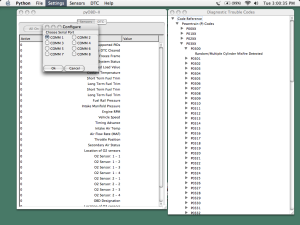When it comes to programming languages, there are countless options to choose from. Some are better suited for certain tasks than others, but few are as powerful and elegant as Haskell. Haskell is a functional programming language that has been around since the late 1980s. Despite its age, Haskell remains a relevant and popular language today, particularly in academic and research settings. So, what is it that makes Haskell so special? In this blog, we’ll explore the features that make Haskell unique, and why it’s worth learning and using for modern programming.
Functional Programming
The first thing to understand about Haskell is that it’s a functional programming language. This means that Haskell emphasizes the use of functions to solve problems, rather than relying on imperative programming paradigms like loops and conditionals. While this may sound restrictive, functional programming actually offers a number of benefits over imperative programming. For example, functional programs tend to be more concise, easier to reason about, and less prone to bugs.
Lazy Evaluation
One of Haskell’s most interesting features is its use of lazy evaluation. In a lazily evaluated program, expressions are only evaluated when they’re actually needed. This can lead to more efficient and elegant code, since the program doesn’t waste time computing unnecessary results. It also means that Haskell can work with infinite data structures, like an infinite list of numbers, without causing an overflow error.
Type System
Haskell has a strong and expressive type system that can help catch errors at compile-time, before the program is even run. This can save a lot of debugging time and help ensure that the program behaves correctly. Haskell’s type system also supports type inference, which means that the compiler can often figure out the types of variables and functions automatically. This can lead to more concise code that’s still correct and safe.
Concurrency and Parallelism
Haskell is also well-suited for concurrent and parallel programming. Its functional nature makes it easy to write code that doesn’t have side-effects, which can make it easier to reason about and to parallelize. Haskell also has a number of powerful libraries for working with concurrency and parallelism, including the popular “Control.Concurrent” library.
Community and Libraries
Finally, Haskell has a vibrant and active community of developers, which means there are many libraries and resources available to help you learn and use the language effectively. The Haskell community is also known for being friendly and welcoming, with a strong emphasis on mentorship and education.
Conclusion
Haskell is a powerful and unique programming language that offers a number of benefits over more traditional languages. Its functional nature, lazy evaluation, expressive type system, and support for concurrency and parallelism make it a great choice for modern programming challenges. If you’re looking to expand your programming knowledge and explore a new paradigm, Haskell is definitely worth considering.
Advantages
Haskell is a powerful programming language with a number of advantages that make it a popular choice among developers, particularly those working in academic and research settings. Here are some of the key advantages of Haskell:
- Concise and elegant code: Haskell’s functional programming paradigm allows developers to write code that is more concise and expressive than traditional imperative languages. This can make code easier to read, understand, and maintain.
- Strong and expressive type system: Haskell’s type system helps catch errors at compile-time, before the program is even run. This can save a lot of debugging time and help ensure that the program behaves correctly. Haskell’s type system also supports type inference, which means that the compiler can often figure out the types of variables and functions automatically. This can lead to more concise code that’s still correct and safe.
- Lazy evaluation: Haskell uses a lazily evaluated programming model, which means that expressions are only evaluated when they’re actually needed. This can lead to more efficient and elegant code, since the program doesn’t waste time computing unnecessary results. It also means that Haskell can work with infinite data structures, like an infinite list of numbers, without causing an overflow error.
- Concurrency and parallelism: Haskell’s functional nature makes it easy to write code that doesn’t have side-effects, which can make it easier to reason about and to parallelize. Haskell also has a number of powerful libraries for working with concurrency and parallelism, including the popular “Control.Concurrent” library.
- Active and supportive community: Haskell has a vibrant and active community of developers, which means there are many libraries and resources available to help you learn and use the language effectively. The Haskell community is also known for being friendly and welcoming, with a strong emphasis on mentorship and education.
Overall, Haskell’s combination of functional programming, lazy evaluation, strong typing, and support for concurrency and parallelism make it a powerful and unique language that is well-suited for modern programming challenges.
Disadvantages
While Haskell is a powerful and unique programming language with many advantages, there are also some potential disadvantages to consider:
- Steep learning curve: Haskell’s functional programming paradigm can be quite different from traditional imperative programming languages, which means that it can take some time for developers to learn and become proficient in Haskell.
- Limited industry adoption: While Haskell has a dedicated community of developers, it is still not as widely used in industry as more traditional languages like Java or Python. This means that job opportunities for Haskell developers may be more limited.
- Limited library and tool support: While there are many libraries and resources available for Haskell, the language still lags behind more popular languages in terms of the number and variety of libraries and tools available.
- Debugging can be challenging: Because Haskell is a lazily evaluated language, debugging can be more challenging than in traditional imperative languages. Additionally, Haskell’s strong type system can sometimes make it difficult to write functions that work with a wide range of data types.
- Performance can be a concern: While Haskell is well-suited for concurrency and parallelism, its lazily evaluated model can sometimes lead to performance issues in certain applications. Additionally, Haskell’s garbage collector can sometimes cause performance issues in larger programs.
Overall, while Haskell is a powerful and unique language that can offer many advantages, it may not be the best choice for every programming task or developer. It’s important to carefully consider the potential disadvantages of Haskell and weigh them against the benefits before deciding whether to use it for a particular project.










